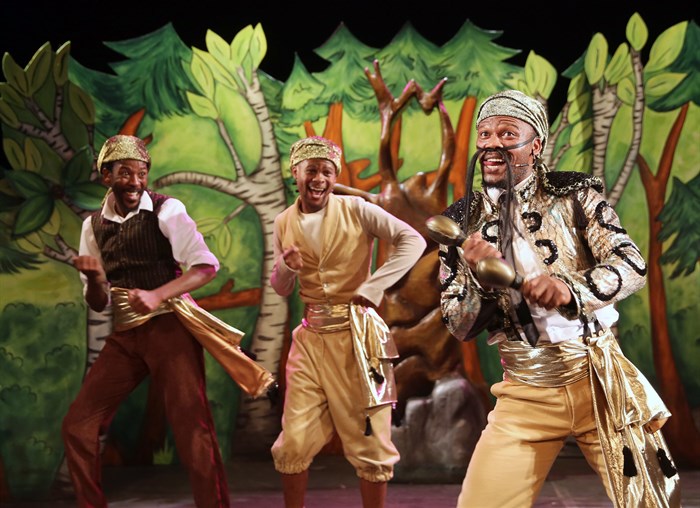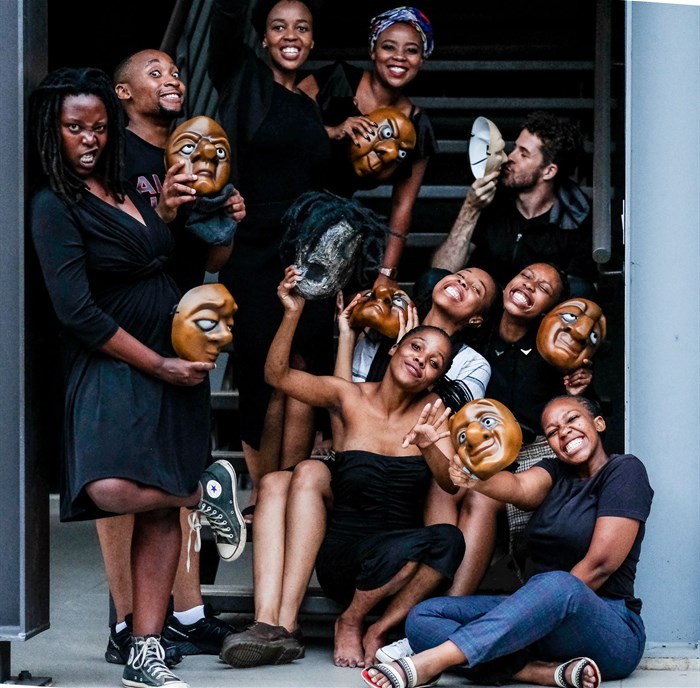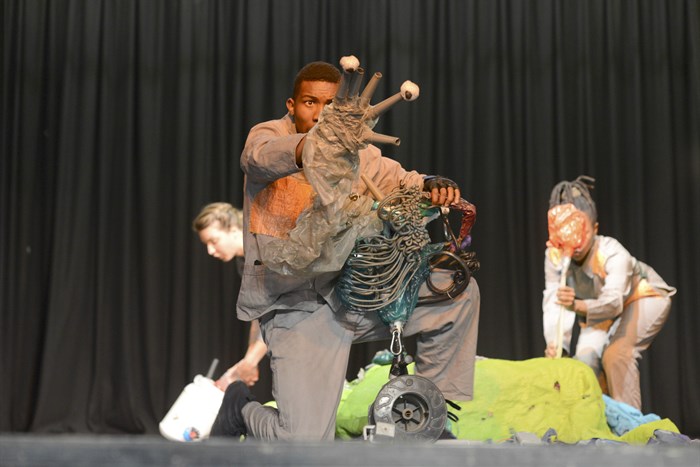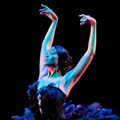How the National Arts Fest develops SA's young artists
In celebration of #YouthMonth, the National Arts Festival (NAF) has outlined how its youth-focused platforms assist in developing the country's artists. The National Arts Festival is on from 27 June to 7 July 2019 in the Eastern Cape town of Makhanda, formerly Grahamstown.
According to the NAF’s acting executive producer Nobesuthu Rayi, the arts festival is part of a broader South African arts ecosystem that nurtures both audience and talent. "We hope it creates respect for the arts that will see it better funded and integrated into people’s lives. It all begins with developing emerging talent and inspiring young minds. We want to spark that appetite to be on the stage, to create work – but also to make people want to come and see the arts and to instil a cultural habit. We hope that the impact of what happens on the stages, galleries and open spaces of Makhanda goes way beyond the 11 days of the festival,” says Rayi.

The Gruffalo/iGruffalo - © Nardus Engelbrecht
In a recent interview about his 25 years of coming to the National Arts Festival, seasoned performer Rob van Vuuren recalled his first-ever festival: “I was in standard eight (grade 10) and it changed my life. I got to see Andrew Buckland, Johannes Kerkorrel, Theatre for Africa and so much more in an environment that was overflowing with creativity and expression. Having grown up in conservative and brutal apartheid South Africa, the festival made me feel like I could breathe again and maybe the world wasn’t mad. It blew my mind. So I had to keep coming back.” Van Vuuren credits the festival as a ground for experimentation, receptive audiences and collaborative work.
Showcasing young theatre-makers
The Student Theatre programme showcases the ideas and experimentation of young theatre-makers. The creative process of the University of Johannesburg’s (UJ) Metamorphosis involved 300 students across faculties, while Afda’s Phitlo merges design (mask-making) and performance. The Market Theatre Laboratory investigates what informs the selection and exclusion of news in Le Journal. Food histories and cultures come under scrutiny in the University of Cape Town’s (UCT) My Daily Bread and Wits presents a double bill – 2 Fingers @Work, about the multiplicity of meanings behind the two-finger gesture, and When Hope Met Themba, a study of a contemporary inter-racial relationship. Several other productions are being presented by a number of the country’s institutions, affording young artists a chance to stage and exhibit works on a professional platform.

Afda's Phitlo/The Hidden - © Alistair McLachlan
Nurturing musical talent
A key project in a music environment that offers limited opportunities for mentorship and exposure is the Standard Bank National Youth Jazz Festival, which is a one-of-a-kind programme for jazz musicians aged 19 to 25 to receive mentorship and exposure. This year, it is under the direction of Afrika Mkhize. Another key element of the Standard Bank Jazz Festival is the Standard Bank National Schools’ Big Band; a space for the country’s top young school jazz musicians to perform and experience live performance in a festival setting alongside many of the greats of jazz from South Africa and abroad. Reading the biographies of artists on the main Standard Bank Jazz Festival bill – such as Bokani Dyer, Mandisi Dyantis, Shane Cooper and Justin Sasman – it is evident that it was in the Standard Bank Youth Jazz Festival and Standard Bank National Schools’ Band where many of them gained the recognition and nurturing they needed to forge a career in music.
This year’s Standard Bank Young Artist for Jazz, Mandla Mlangeni, affirms this: “It feels like I have come full circle from being in the Standard Bank National Youth Jazz Festival almost 12 years ago. It is largely because of the efforts of the Standard Bank National Youth Jazz Festival that South Africa enjoys a thriving music scene today, bringing learners into contact with top-flight jazz musicians from all around the world who congregate at NAF and, for six full days, give all their time to nurturing and guiding young musicians. The foundations for a thriving jazz scene take root at the Youth Jazz Festival. I believe if such systems are kept in place, music in South Africa will continue getting better.”
Recognising emerging talent
The Standard Bank Young Artist Award, now in its 35thyear, honours emerging and talented South African artists at critical points in their careers. Having already earned some recognition and experience, those who win the award are given an opportunity to showcase their creative genius and take their place on an important roll call of creators. This year’s Standard Bank Young Artists – Gabrielle Goliath (visual art), Megan-Geoffrey Prins (music), Kitty Phetla (dance), Amy Jeptha (theatre) and Mandla Mlangeni (jazz) – will all present new works at NAF.
Keeping the young(er) ones in mind
Developing future audiences is another key piece of the puzzle and this year’s Family Theatre programme is full of richly entertaining and diverse works. From Well Worn Theatre’s collection of eco-conscious works – Swarm Theory, Plastocracy, Galela and Rat Race – to flights of fantasy in The Bookbinder, a beautiful journey into the mind of a bookmaker, and The Bubble Show, where Maxwell the “bubbleologist” performs breathtaking bubble displays.
In a significant first for the festival, two successful children’s plays have been translated into isiXhosa: uFlorence Nowatson Kunye Nempuku Yomba (Florence and Watson and the Sugarbird Mouse) and iGruffalo (The Gruffalo).

Well Worn Theatre's play Playstocracy - © Suzy Bernstein
The annual Children’s Concert, this year performed by the Kwa-Zulu Natal Youth Orchestra, affords children a captivating (and free) opportunity to understand the workings of an orchestra and the making of music. The National Arts Festival’s Schools’ Festival is another programme that connects young people with the arts. Working with schools, the festival brings groups of learners to Makhanda for an extraordinary experience across numerous productions, talks, workshops and other activities.
Merging technology and the arts
A new addition to the festival’s programme, the Creativate Digital Arts Festival explores the fusion of technology and the arts. A combination of exhibitions, talks, workshops, experiences, theatre, performance art and a number of genre-busting works, this is the hub for discovering exciting new iterations of more traditional arts using digital elements.
Experiences range from the 365° virtual reality play Frogman to an app-guided walk through the imagined past on the streets of Makhanda in Sanjin Muftic’s Ukubekindlebe. Sirqus Alfon’s work is interplay between digital and physical elements in I Am Somebody, while Ersatz by Julien Mellano is described as “a cross between Jacques Tati and Black Mirror, under the watchful eye of Alan Turing.”

